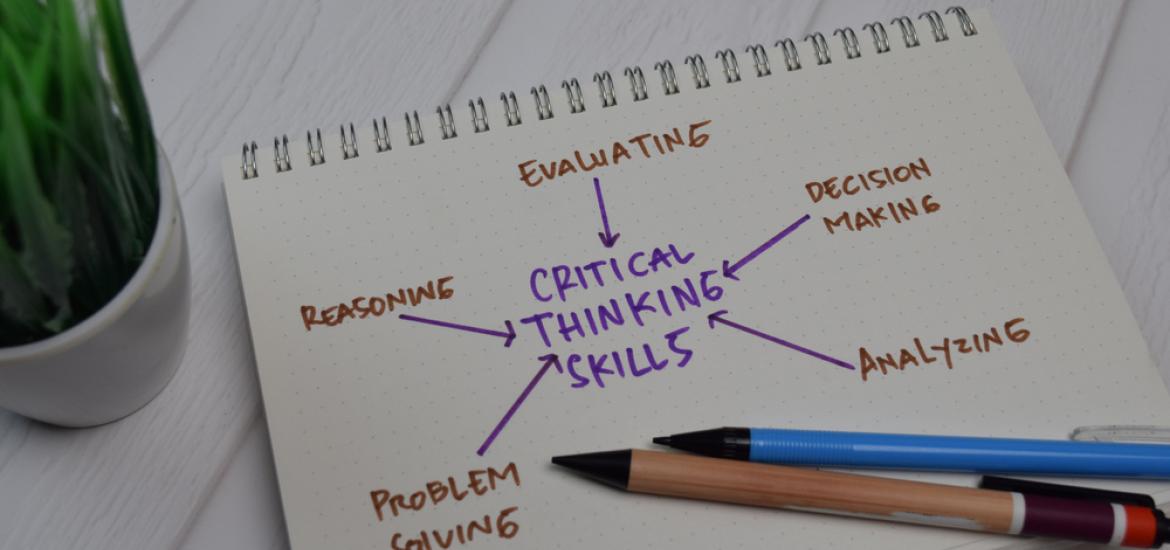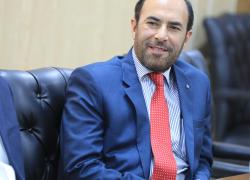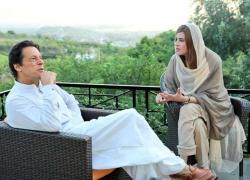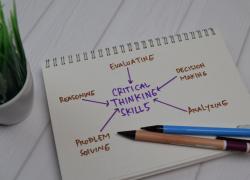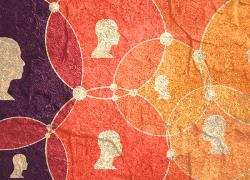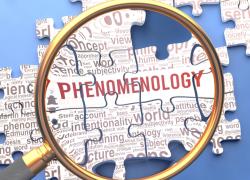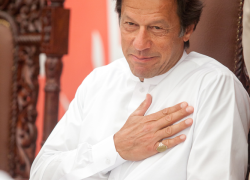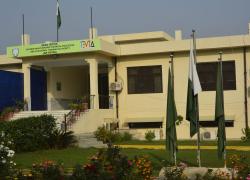Thinking Deeper: An Introduction to the Basics of Critical Thinking
In the vast expanse of knowledge acquisition, where ideas intertwine and complexities abound, the ability to think critically emerges as the beacon guiding intellect through the intricate maze of information. As we embark on this intellectual journey, we find ourselves at the crossroads of exploration and insight, ready to unlock the profound potential that lies within the art of thinking deeper.
Critical thinking, often hailed as the cornerstone of scholarly pursuits, is more than a skill—it’s a mindset, an approach that transcends conventional thought. In this exploration into the basics of critical thinking, we invite you to traverse the realms of inquiry, analysis, and reasoned reflection. Whether you’re a student venturing into higher education or a seasoned professional seeking to refine your cognitive toolkit, this journey promises to unravel the foundational principles that underpin the ability to think critically.
In this blog post, we discuss the fundamental concepts associated with critical thinking. Here we shall navigate the currents of curiosity, challenge assumptions, and embark on a quest to cultivate a deeper understanding of the intellectual prowess that lies within every thought we entertain. “Thinking Deeper” is not just an introduction; it’s an invitation to embark on a transformative expedition into the heart of critical thinking. This post mainly covers the following important areas:
- What is critical thinking?
- How to define critical thinking?
- Various definitions of critical thinking
- How has the definition evolved over time?
- Historical background of critical thinking
- What are the key components of critical thinking?
- What are the main principles of critical thinking?
- Importance of critical thinking
- How critical thinking can be used in everyday life?
- What are the key characteristics/features of a critical thinker?
These fundamental concepts associated with critical thinking are explained here at length:
What is critical thinking?
Critical thinking is a cognitive process that involves analyzing, evaluating, and synthesizing information and ideas in a systematic and disciplined manner. It is a form of active, purposeful thinking that goes beyond simply accepting information at face value. Instead, critical thinkers engage in a thoughtful and reflective process to assess the credibility, relevance, and logical consistency of information before forming conclusions or making decisions.
Critical thinking is the ability to think clearly and rationally about information. It involves evaluating information, identifying biases, and drawing sound conclusions. Critical thinkers are able to think independently, question assumptions, and consider multiple perspectives. They are also able to identify and avoid logical fallacies, such as hasty generalizations and false dichotomies.
Critical thinking is a valuable skill in various aspects of life, including education, professional work, decision-making, and problem-solving. It is essential for making informed and reasoned judgments, adapting to new situations, and engaging in effective communication and collaboration
How to define critical thinking?
Critical thinking is a complex and multifaceted ability that encompasses a variety of skills and processes. It can be defined as the ability to think clearly and rationally, understanding the logical connection between ideas.
It is the intellectual process of actively and skillfully conceptualizing, analyzing, synthesizing, and evaluating information and ideas. It involves a deliberate and reflective approach to understanding and solving problems, making decisions, and forming judgments. Critical thinking goes beyond simply accepting information or opinions; instead, it emphasizes the ability to assess the quality and relevance of information, identify underlying assumptions, and draw logical and well-supported conclusions.
Overall, critical thinking is a dynamic and iterative process that enhances an individual’s ability to think independently, make well-informed decisions, and navigate the complexities of various situations.
Various definitions of critical thinking
Critical thinking is a multifaceted concept, and different scholars and educators may offer slightly varied definitions. Critical thinking is the intellectually disciplined process of actively and skillfully conceptualizing, applying, analyzing, synthesizing, and/or evaluating information gathered from, or generated by, observation, experience, reflection, reasoning, or communication, as a guide to belief and action. It is reasonable, reflective thinking that is focused on deciding what to believe or do. Or, a catchy way of defining critical thinking is deciding what’s true and what you should do. But my favorite and most simple definition is that critical thinking is simply “thinking about thinking”.
Here are a few alternative definitions from various perspectives offered by different authors:
According to Richard Paul and Linda Elder “Critical thinking is the intellectually disciplined process of actively and skillfully conceptualizing, applying, analyzing, synthesizing, and/or evaluating information gathered from, or generated by, observation, experience, reflection, reasoning, or communication, as a guide to belief and action.” Whereas Robert H. Ennis believes, “Critical thinking is reasonable, reflective thinking that is focused on deciding what to believe or do. It involves being open-minded and mindful of alternatives, as well as being aware of one’s own biases and values.”
To Edward Glaser, “Critical thinking calls for a persistent effort to examine any belief or supposed form of knowledge in the light of the evidence that supports it and the further conclusions to which it tends.” Similarly, Diane F. Halpern argues that critical thinking is the use of those cognitive skills or strategies that increase the probability of a desirable outcome. It is used to describe thinking that is purposeful, reasoned, and goal-directed—the kind of thinking involved in solving problems, formulating inferences, calculating likelihoods, and making decisions.
John Dewey is of the opinion that critical thinking is active, persistent, and careful consideration of a belief or supposed form of knowledge in light of the grounds that support it and the further conclusions to which it tends. To sum it up in the words of Bertrand Russell, “The fundamental cause of the trouble is that in the modern world, the stupid are cocksure while the intelligent are full of doubt.”
These definitions collectively emphasize the active, reflective, and purposeful nature of critical thinking, highlighting its role in effective decision-making, problem-solving, and the evaluation of information.
How has the definition of critical thinking evolved over time?
The definition of critical thinking has evolved significantly over time. In ancient times, it was closely associated with the Socratic method of questioning, aimed at stimulating curiosity and challenging assumptions. During the Renaissance period, critical thinking was moulded by philosophers such as René Descartes, who emphasised the need for scepticism and systematic doubt to achieve certainty. Later Enlightenment philosophers, including Immanuel Kant, expanded this definition to include the assessment of evidence and logical reasoning.
In the 20th century, educational philosopher John Dewey described critical thinking as an active, persistent, and careful consideration of a belief or supposed form of knowledge. He stressed the importance of questioning and reflective thought. In the 1950s, Benjamin Bloom and his colleagues conceptualised critical thinking in terms of higher-order thinking skills. They listed analysis, evaluation, and synthesis (generating new knowledge) as the highest forms of cognitive processes, which formed the foundation of critical thinking.
In recent years, the definition of critical thinking has continued to evolve and expand. Today, it is understood to involve a wide range of cognitive skills and dispositions, including clarification, accurate judgment, the search for evidence, the ability to recognise the complexity of issues and problems, and a willingness to acknowledge the limitations of one’s own knowledge and perspective.
Therefore, the modern definition of critical thinking encompasses not just logic and analytical abilities, but also empathy, mindfulness and cultural, historical, and sociological understanding. It continues to develop with the advancement of cognitive science, pedagogy and philosophy, and is recognised as a vital skill needed in education and life in general.
The concept of critical thinking has transformed and modified over time as scholars, educators, and researchers have refined their understanding of cognitive processes and the skills necessary for effective thinking. Here’s a broad overview of the evolution of the concept:
- Classical antiquity: Critical thinking has roots in the teachings of ancient philosophers such as Socrates and Plato. Socratic questioning, which involves asking and answering questions to stimulate critical thinking, was a foundational element.
- Enlightenment era: During the Enlightenment, thinkers like John Locke and Immanuel Kant emphasized reason, evidence, and skepticism. The idea of questioning authority and seeking evidence became central to critical thinking.
- The 20th-century development: The mid-20th century saw the emergence of structured approaches to critical thinking. Bloom’s Taxonomy (1956), for instance, categorized thinking skills hierarchically, emphasizing the progression from basic recall to higher-order thinking skills like analysis and synthesis. Critical thinking gained prominence in education during this period. Ennis, for example, focused on dispositions such as open-mindedness and critical awareness. The 1990s witnessed an increased emphasis on critical thinking in education, with educators recognizing it as a key 21st-century skill. The definition broadened to include practical problem-solving, decision-making, and effective communication.
- 21st Century: The definition of critical thinking in the 21st century incorporates considerations of information literacy, digital literacy, and the ability to navigate and critically evaluate vast amounts of information available through technology. Globalization and the increasing complexity of issues have also influenced the understanding of critical thinking as a skill for navigating diverse perspectives.
Throughout these phases, there has been a shift from viewing critical thinking as a purely intellectual skill to recognizing the importance of attitudes, dispositions, and practical application in real-world situations. The evolving definition reflects a growing understanding of the interconnected nature of cognitive skills, metacognition, and the social context in which critical thinking occurs.
Historical background of critical thinking
The historical background of critical thinking spans centuries and encompasses a wide range of philosophical traditions and educational practices.
Ancient Greece
The roots of critical thinking can be traced back to ancient Greece, where the philosopher Socrates (470-399 BC) employed a method of inquiry known as the Socratic method. Socrates would engage in dialogues with his interlocutors, asking probing questions to challenge their assumptions and encourage them to think critically about their beliefs.
Socrates’ method of questioning was designed to help people develop their own understanding of the world, rather than simply accepting the prevailing wisdom. He believed that true knowledge could only be obtained through careful examination and critical evaluation of evidence.
Medieval Europe
During the Middle Ages, critical thinking continued to be developed and refined in the context of religious scholarship. Scholars such as Thomas Aquinas (1225-1274) sought to reconcile faith with reason, using critical thinking to analyze and interpret religious texts.
Aquinas’ work helped to lay the foundation for the development of Scholasticism, a system of philosophical and theological thought that emphasized the importance of critical thinking and rational inquiry.
Renaissance and Enlightenment
The Renaissance and Enlightenment periods saw a renewed emphasis on critical thinking, as scholars and philosophers challenged traditional authorities and sought to expand the boundaries of human knowledge.
Descartes’ famous dictum, “I think, therefore I am,” reflected the growing emphasis on individual reason and critical self-reflection. Philosophers such as Francis Bacon and John Locke developed new methods of scientific inquiry that emphasized observation, experimentation, and logical reasoning.
The 19th and 20th Centuries development:
In the 19th and 20th centuries, critical thinking became increasingly important in education, as educators recognized its value for developing informed and engaged citizens. John Dewey, an American philosopher and educational reformer, was a leading proponent of critical thinking in education. He believed that critical thinking was essential for preparing students to live in a democratic society, where they would be called upon to make informed decisions about complex issues.
Critical Thinking Today
Today, critical thinking is recognized as an essential skill for success in every walk of life. In a world of information overload, critical thinking skills are needed to evaluate information, identify biases, and make sound judgments. Critical thinking is also important for personal growth and development. It allows individuals to think for themselves, challenge their own assumptions, and develop their own unique perspectives.
The history of critical thinking is a rich and complex one, reflecting the ongoing human quest for knowledge and understanding. Critical thinking is an essential skill for individuals and societies alike, and its importance will only continue to grow in the years to come.
What are the key components of critical thinking?
Critical thinking is a complex process that involves a variety of skills and dispositions. While there is no single definition of critical thinking that is universally accepted, there are several key components that are generally recognized as being essential.
- Analysis: Critical thinking involves breaking down complex information into its component parts and examining it closely. This includes identifying the main ideas, supporting evidence, and underlying assumptions. Critical thinkers break down complex information into its constituent parts to understand the relationships and patterns within it to identify the main ideas, arguments, and evidence.
- Evaluation: Critical thinking involves assessing the credibility of information and the strength of arguments. This includes considering the source of the information, the quality of the evidence, and the logic of the reasoning. Critical thinkers assess the quality and reliability of information, considering factors such as the source’s trustworthiness, the evidence provided, and the logic of the arguments. The aim is to question assumptions and biases.
- Inference: Critical thinking involves drawing conclusions from information that is not explicitly stated. This requires making connections between different pieces of information and identifying patterns and trends. Critical thinkers draw logical conclusions from the information they analyze. They go beyond what is explicitly stated and make reasonable inferences based on evidence and reasoning.
- Problem-solving: Critical thinking involves identifying problems, generating solutions, and evaluating potential outcomes. This requires a creative and analytical approach to problem-solving. Critical thinking involves applying reasoning and problem-solving skills to address challenges or answer questions. It requires creativity and the ability to generate and consider alternative solutions.
- Synthesis: Critical thinking involves combining information from multiple sources to create a new understanding. This requires the ability to see connections between different ideas and to integrate new information with existing knowledge.
- Self-regulation: Critical thinking involves being aware of one’s own biases and preconceptions and being able to control them. This requires self-reflection and the ability to be open-minded and objective. Critical thinkers reflect on their own thinking processes, acknowledging and adjusting for potential biases or assumptions. They are open to reevaluating their views in light of new evidence or perspectives.
- Metacognition: Critical thinking involves thinking about one’s own thinking process. This includes identifying one’s own strengths and weaknesses as a critical thinker and developing strategies for improving one’s critical thinking skills.
These are just some of the key components of critical thinking. Critical thinking is a complex and multifaceted skill that can be developed through practice and experience.
What are the main principles of critical thinking?
Critical thinking is a complex and multifaceted skill that encompasses a wide range of dispositions, abilities, and skills. However, at its core, critical thinking is about making sound judgments based on evidence and reason. While there is no single, universally accepted definition of critical thinking, there are several key principles that are generally recognized as being essential. This helps individuals approach information and problems in a systematic and reasoned manner.
These principles collectively contribute to the development of a critical thinker, guiding the thoughtful and systematic evaluation of information and the development of reasoned conclusions. It provides a foundation for critical thinking and can guide individuals in developing their ability to think clearly, rationally, and effectively.
- Clarity and accuracy: Critical thinking requires clarity of thought and expression. This means being able to articulate ideas clearly and precisely, avoiding ambiguity and vagueness. It also means being able to accurately represent and interpret information, ensuring that one’s understanding of the facts is sound.
- Precision and relevance: Critical thinking demands precision in one’s analysis and evaluation. This involves identifying the specific details and nuances of information and arguments, rather than relying on generalizations or oversimplifications. It also means focusing on the information that is relevant to the issue at hand, avoiding irrelevant or extraneous details.
- Logic and consistency: Critical thinking relies on sound reasoning and consistent application of logical principles. This means avoiding logical fallacies, such as hasty generalizations or ad hominem attacks. It also means ensuring that one’s reasoning is consistent across different contexts and situations.
- Evidence and justification: Critical thinking requires supporting claims and arguments with evidence and justification. This involves providing credible sources of information, using relevant data and examples, and explaining the reasoning behind one’s conclusions.
- Open-mindedness and fairness: Critical thinking demands an open-mindedness and willingness to consider different perspectives. This means being receptive to new ideas and challenging one’s own biases and assumptions. It also means evaluating arguments fairly, considering both the strengths and weaknesses of each position.
- Context and relevance: Critical thinking requires understanding the context in which information or arguments are presented. This involves considering the historical, cultural, and social factors that may influence the interpretation of information. It also means evaluating the relevance of information to the specific issue at hand.
- Synthesis and integration: Critical thinking involves synthesizing information from multiple sources and integrating it into a coherent understanding. This means drawing connections between different pieces of information, identifying patterns and trends, and creating a comprehensive understanding of the issue.
- Self-reflection and metacognition: Critical thinking demands self-reflection and metacognition, the ability to think about one’s own thinking process. This involves identifying one’s own strengths and weaknesses as a critical thinker and developing strategies for improving one’s critical thinking skills.
Importance of critical thinking?
Critical thinking is a crucial skill that involves the ability to think rationally, logically, and independently. It is a process of analyzing, evaluating, and synthesizing information to make informed decisions, solve problems, and form well-reasoned judgments. The importance of critical thinking can be seen in various aspects of personal and professional life. Some of these are discussed here:
- Problem solving: Critical thinking enables individuals to approach problems systematically, break them down into smaller parts, and analyze each component to develop effective solutions.
- Decision making: Informed decision-making requires considering multiple perspectives, weighing evidence, and anticipating potential consequences. Critical thinkers are better equipped to make reasoned and sound decisions.
- Effective communication: Critical thinkers can express their ideas clearly and persuasively. They can analyze and evaluate arguments, making them more adept at engaging in constructive and meaningful discussions.
- Innovation: Critical thinking fosters creativity and innovation by encouraging individuals to question assumptions, explore alternative perspectives, and generate new ideas.
- Learning and adaptability: Critical thinking is essential for effective learning. It involves a continuous process of inquiry and reflection, helping individuals acquire and apply knowledge more effectively. It also enables adaptability to new information and changing circumstances.
- Analytical skills: Critical thinking involves analyzing information, identifying patterns, and discerning relationships. These analytical skills are valuable in various fields, from science and technology to business and the humanities.
- Research skills: In academic and professional settings, critical thinking is essential for conducting thorough research. It involves evaluating sources, assessing the reliability of information, and drawing well-supported conclusions.
- Ethical reasoning: Critical thinking encourages individuals to consider the ethical implications of their actions and decisions. It promotes responsible and moral reasoning, contributing to ethical decision-making.
- Problem prevention: Critical thinking involves anticipating potential problems and addressing them before they become significant issues. This proactive approach is valuable in both personal and professional contexts.
- Teamwork and collaboration: Critical thinkers contribute positively to group dynamics. They can consider various viewpoints, communicate effectively, and work collaboratively with others to achieve common goals.
In summary, critical thinking is a foundational skill that enhances problem-solving abilities, decision-making processes, and overall cognitive function. It is an essential tool for navigating the complexities of the modern world, both personally and professionally. It is not just a skill for scholars and professionals; it is a valuable tool for everyone. It can help us to make better choices in our personal lives, participate more effectively in civic life, and be more informed and engaged citizens.
How critical thinking can be used in everyday life?
Critical thinking is a vital skill that allows individuals to analyze information, evaluate arguments, and form sound judgments. It is a valuable tool for making informed decisions, solving problems effectively, and communicating persuasively. By incorporating critical thinking into your daily life, you can circumnavigate challenges more effectively, make better decisions, and engage in a more thoughtful and intentional way with the world around you.
Here are some examples of how critical thinking can be used in everyday life:
- Evaluating news reports: Critical thinking can help us to assess the credibility of news sources, identify biases, and determine the reliability of information.
- Making financial decisions: Critical thinking can help us to compare different financial products, understand the risks and benefits of different investments, and make informed financial decisions.
- Resolving conflicts: Critical thinking can help us to identify the root cause of a conflict, consider different perspectives, and find solutions that are fair to all parties involved.
- Making informed political choices: Critical thinking can help us to evaluate the policies and positions of different candidates, understand the implications of different issues, and make informed decisions about how to vote.
Critical thinking is a lifelong skill that can be developed through practice and experience. There are many resources available to help people develop their critical thinking skills, such as books, articles, websites, and online courses. By developing our critical thinking skills, we can become more informed, engaged, and effective decision-makers in all aspects of our lives.
What are the key characteristics/features of a critical thinker?
Critical thinkers possess a set of characteristics that distinguish them in their approach to problem-solving, decision-making, and the evaluation of information. Here are some key characteristics of a critical thinker:
- Open-mindedness: It is the willingness to consider and entertain different perspectives and ideas. Critical thinkers approach issues with a receptive mindset, avoiding dogmatism, and remaining open to alternative viewpoints.
- Inquisitiveness: it is the natural curiosity and desire to learn and understand. Critical thinkers ask questions, seek out information, and actively pursue knowledge to deepen their understanding of various subjects.
- Analytical Skills: It is the ability to break down complex ideas or problems into manageable parts. Critical thinkers can analyze information, identify key components, and discern patterns and relationships within complex systems.
- Problem-Solving Abilities: It is the skill to approach challenges systematically and develop effective solutions. Critical thinkers assess problems, generate creative solutions, and evaluate the potential outcomes of different courses of action.
- Effective Communication: It is the ability to to articulate thoughts and ideas clearly and persuasively. Critical thinkers can express their reasoning coherently, engage in meaningful dialogue, and communicate complex ideas effectively to others.
- Judgment: It is the capacity to make well-reasoned decisions and evaluations. Critical thinkers weigh evidence, consider multiple perspectives, and make informed judgments based on careful analysis.
- Reflection: It is the practice of regularly examining and reassessing one’s own thinking processes. Critical thinkers engage in metacognition, reflecting on their assumptions, biases, and the potential limitations in their own thinking.
- Skepticism: A questioning attitude toward information and a tendency to critically examine claims. Critical thinkers approach information with a healthy skepticism, questioning the accuracy, reliability, and credibility of sources.
- Creativity: The ability to approach problems with originality and generate innovative solutions. Critical thinkers embrace creative thinking to explore novel ideas and approaches to problem-solving.
- Decision-Making: It is the ability to make well-considered choices based on available information. Critical thinkers weigh the pros and cons, consider potential consequences, and make decisions that align with their goals and values.
- Self-Discipline: It is the ability to to control one’s own thinking and avoid impulsive judgments. Critical thinkers exercise self-discipline by staying focused on relevant information, avoiding emotional reasoning, and remaining objective in their analyses.
- Intellectual Courage: It is the willingness to confront and explore challenging ideas and viewpoints. Critical thinkers demonstrate intellectual courage by engaging with complex and sometimes uncomfortable concepts, fostering a culture of open inquiry.
These characteristics collectively contribute to the development of a well-rounded critical thinker who can navigate the complexities of information, make sound decisions, and adapt to a variety of intellectual challenges.
Conclusion:
As we conclude our discussion about the fundamentals of critical thinking, we find ourselves standing at the gateway to intellectual empowerment. The journey through this introduction has been a venture into the very essence of what sets great minds apart—the ability to think critically. In dissecting the basics, we’ve unearthed the profound impact that deliberate and reflective thinking can have on our understanding of the world. Critical thinking is not just a tool; it’s a catalyst for intellectual growth. It is the compass that guides us through the seas of information, helping us navigate complexities, challenge assumptions, and arrive at informed conclusions.
In a world inundated with information, the ability to think critically becomes a superpower—one that empowers you to discern, evaluate, and contribute meaningfully to your academic pursuits and beyond. May this introduction serve as a stepping stone in your personal and intellectual development, igniting a passion for inquiry and reflection that will accompany you on your academic journey and beyond. As you continue to explore the depths of critical thinking, remember that the most profound discoveries often emerge from the thoughtful intersection of curiosity and analysis. Embrace the challenges, relish the moments of insight, and let the journey of critical thinking be a constant companion in your pursuit of knowledge and understanding.

